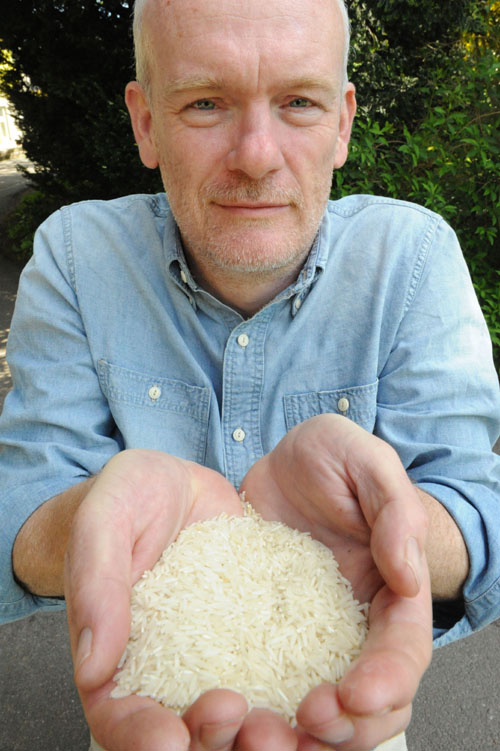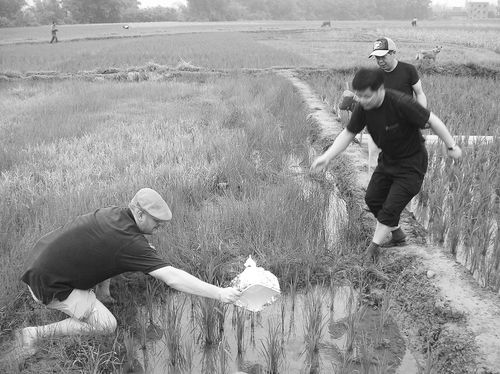By Melissa Clark
SCOTS scientists are creating a new type of “super rice” that could help feed the world.
Using the same DNA techniques that mapped the human genome, they are making a new crop that will be healthier and can be grown in greater quantities.
The new grain, being worked on by scientists at Aberdeen University, will be engineered to contain more beneficial elements such as zinc and copper.

Even more crucial is the fact the new type of rice will be resistant to contamination by naturally-occurring arsenic.
The build up of the poison in crops leads to huge wastage or – if it is not spotted – cholera-like symptoms that can result in death.
The Aberdeen University scientists are working with colleagues in Lancaster, Bangladesh, India and the Philippines on the four-year-project.
Half of the world’s population reply on rice as a sustenance food and the work could make a massive difference to health and nutrition across the globe.

Professor Andrew Meharg, a biogeochemist (corr) in Aberdeen, said: “We will be employing one of the most pioneering developments in plant science- genome sequencing of plants.
“In fact we will be using the very same equipment and chemistry that is used to sequence genes in the human body.
“We plan to sequence the genes of 300 varieties of rice from the country and surrounding Indian states.”
He added: “If we can identify the genes responsible in rice for…positive traits then we can improve crops more rapidly and accurately and ultimately develop a new type of rice which has greater benefits for the world’s population.
“Improving things like zinc and copper and keeping toxic elements out of rice is essential.
“Using the right technique, we can reduce the quantity of arsenic and then feed more people.
“When the rice is grown in flood conditions, arsenic is highly mobilised and the rice can absorb it.”
The work, which is backed by a £1.2m Government grant, will be focused in Bangladesh where rice accounts for 70% of the population’s calorie intake.

